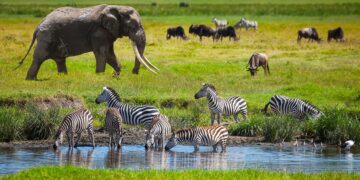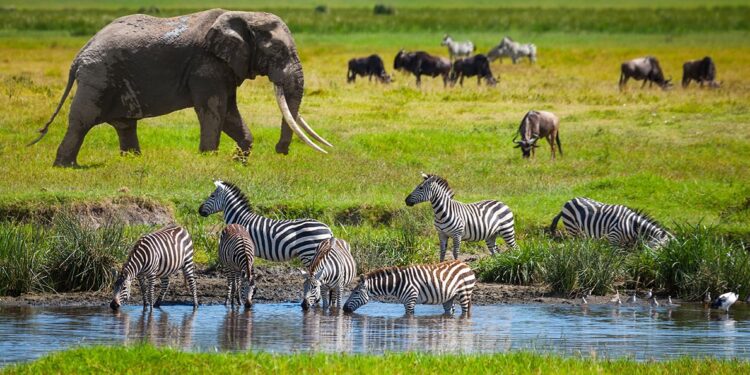By Ebi Kesiena
Facing an escalating climate crisis, Namibia has begun culling at least 700 wild animals in its national parks in a controversial move aimed at addressing the severe drought gripping the country.
The government has described the culling as a necessary measure to mitigate the risk of food insecurity and to manage dwindling water resources in its protected areas.
The operation, led by professional hunters, targets species including hippos, buffaloes, and elephants. While the decision has drawn criticism from conservationists, who have launched petitions to halt the culling, authorities argue that it will provide much needed meat to vulnerable populations and ensure that water reserves last longer during this period of extreme drought.
Namibia declared a state of emergency last May in response to the severe drought affecting all of southern Africa.
The World Food Programme estimates that nearly half of Namibia’s population around 1.4 million people are currently facing acute food insecurity. Despite the outcry, the government maintains that the culling is a crucial step in its broader strategy to combat the crisis.




































